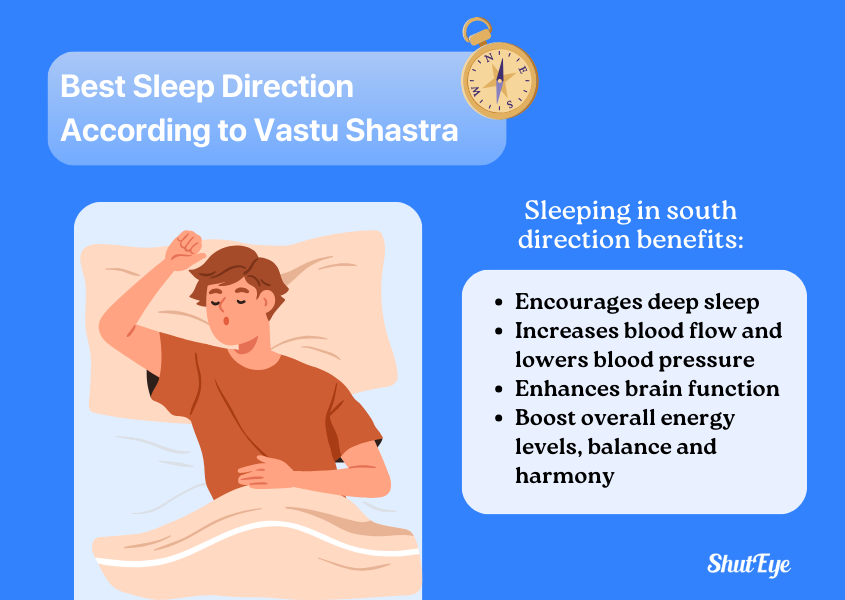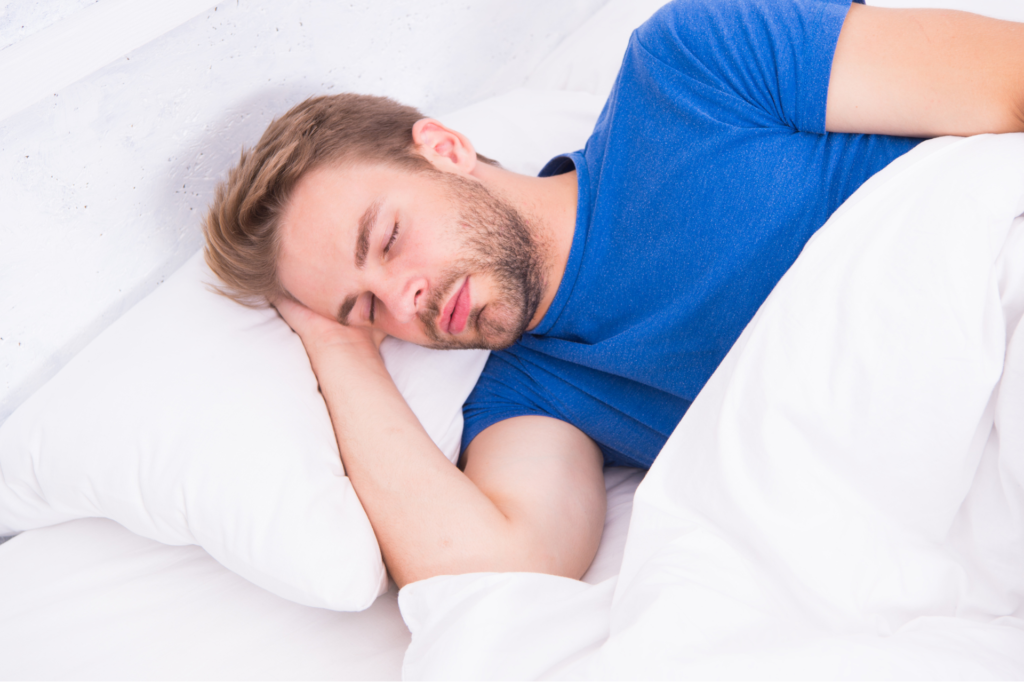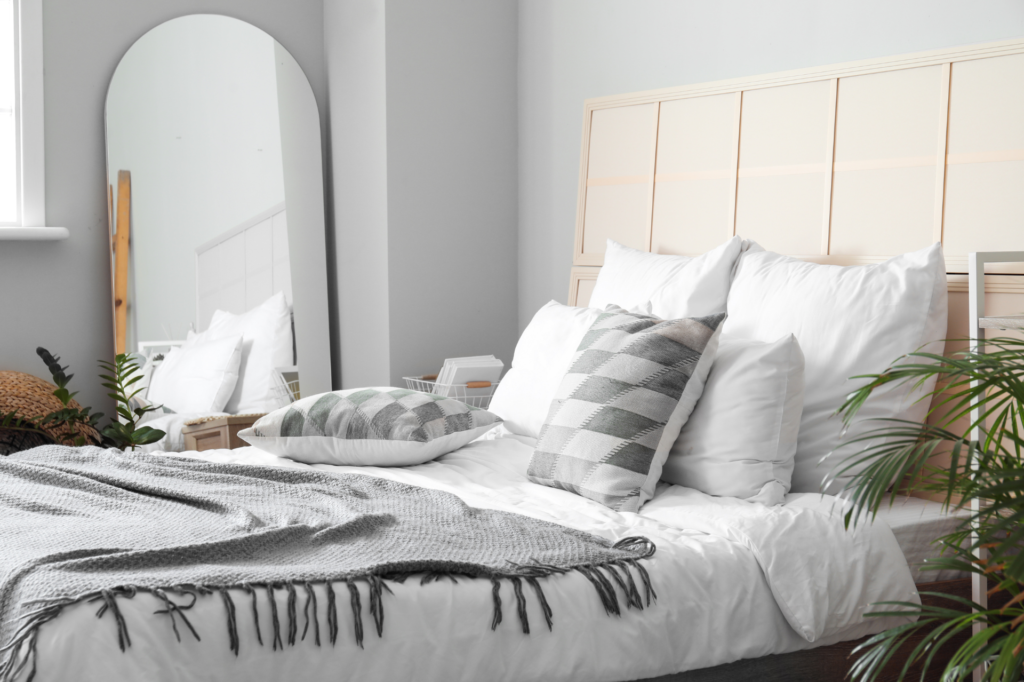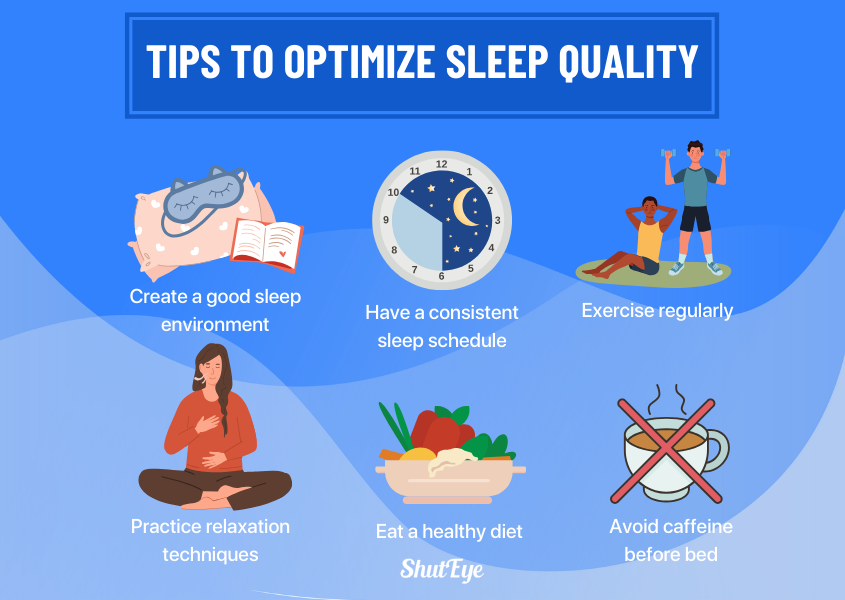


Are you struggling to get a good night’s sleep? Do you wake up feeling tired and groggy, unable to fully function throughout the day? Maybe a reason is that you are not sleeping in the right direction.
If you don’t already know, the direction that you sleep can matter! In this article, we’ll explore the best and worst directions to sleep in from scientific and cultural perspectives, the benefits of sleeping in a particular direction, how to figure out which direction you should sleep in, and tips to enhance your sleep quality.
Sleep direction refers to the position of one’s head during sleep in relation to the cardinal directions (north, south, east and west). According to different beliefs and studies, knowing the direction to sleep in, could potentially help you to get better rest at night.

Despite interest in sleep science continuing to grow, there aren’t many studies done to support a particular direction for sleep scientifically. However, there are some that suggest sleeping facing south may be the best direction. In a study by the National Institute of Health (NIH), it was found that humans can be affected by the Earth’s magnetic energy.
This is because, just like our planet, our bodies also have magnetic poles. Earth’s positive magnetic pole is in the north, while the negative one is in the south. Similarly, our positive pole is near the head, and the negative one is near the feet.
Remember how magnets work – opposite poles attract while similar poles repel. So, when we sleep with our heads pointing north, we’re putting our positive pole against the Earth’s positive pole, leading to continuous repulsion. This can disrupt our sleep and, over time, result in various health issues.
Since there is a lack of scientific studies to support the best sleep direction, some people have resorted to cultural or traditional beliefs to find the best direction to sleep in. Feng shui and Vastu Shastra are the most common beliefs that people take into consideration.

According to Feng Shui, The ideal direction to sleep in is based on the elements in your space and how they affect your chi (energy). Additionally, depending on your personal energy profile or “Kua number,” which is based on your date of birth and gender.
In general, the best direction to sleep in is with your head facing north direction or south direction. It is believed that this alignment harmonizes with the Earth’s magnetic field, which promotes restorative sleep and improves overall health.

According to Vastu Shastra, an ancient Indian practice, sleeping with your head towards the south is considered the best sleep direction while sleeping with your head facing north is considered not ideal. Here are some key reasons why sleeping in the south direction is recommended:
By sleeping in the south direction, you are aligning your body with the Earth’s magnetic pull. That way, you are promoting overall energy levels, balance, and harmony. Remember that there’s only limited scientific research on the ancient practices that highlight the significance of sleeping in a specific direction.
If north and south are considered to be the “best direction to sleep” then that would mean east and west are the worst. Let’s find out what makes them less than ideal.

Sleeping with your head facing east is generally thought to be neutral in terms of sleep direction. It is not associated with any positive or negative energy like the other directions. Some may still choose to avoid sleeping in this direction because it is not comfortable or because of cultural beliefs. So, choosing to sleep in this direction is simply up to an individual.

The worst sleep direction is often considered to be sleeping with your head facing west. In many cultures and beliefs, it is associated with disruption to the body’s natural energy flow. This potentially leads to disturbed sleep, restless nights, or even negative dreams.
It is thought to go against the Earth’s magnetic field, interfering with the body’s ability to rest and rejuvenate during sleep. While individual experiences may vary, many people may find that avoiding west-facing sleep positions can lead to more restful sleep.

According to superstitious beliefs, sleeping in front of the mirror brings bad luck or negative energy into one’s life. But, is that the actual reason why it is bad?
Well, the truth is that there is no scientific evidence to back these claims. However, there may be other reasons why sleeping in front of the mirror is not good for you. For example, if you are sensitive to light, you may want to avoid mirrors because they tend to reflect light and amplify brightness. This would cause sleep disruptions, affecting your overall well-being.
While there’s no scientific consensus on the best direction to sleep, sleeping in the north-south direction can improve your sleep quality.
Sleeping in the north-south position is believed to align your body with the Earth’s magnetic field, which helps to improve sleep quality. By positioning your head towards the south, you may experience enhanced relaxation and positive energy flow. This sleep direction may also improve blood circulation and help your body heal during sleep.
While individual preferences and other factors play a role in sleep quality, trying the north-south direction could potentially optimize your sleep experience.


To optimize your sleep quality, consider the impact of external and internal variables on your sleep. These variables can greatly affect your ability to get a restful slumber. Here are some important factors to consider:
It is still unclear what is the best direction to sleep in. Ancient practices like Vastu Shastra and principles like Feng Shui all have their interpretations of the directions and how they impact sleep and overall well-being.
Ensuring that you are well rested is not solely based on sleep direction but it also encompasses other aspects such as health.
Wang, C. X., Hilburn, I. A., Wu, D. A., Mizuhara, Y., Cousté, C. P., Abrahams, J. N. H., Bernstein, S. E., Matani, A., Shimojo, S., & Kirschvink, J. L. (2019) Transduction of the Geomagnetic Field as Evidenced from alpha-Band Activity in the Human Brain [online]. eNeuro, 6(2), ENEURO.0483-18.2019. https://doi.org/10.1523/ENEURO.0483-18.2019